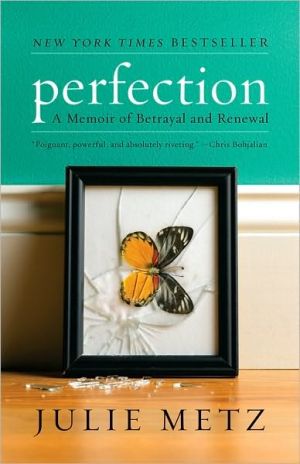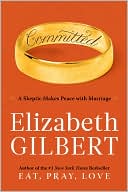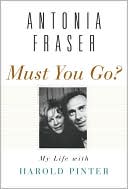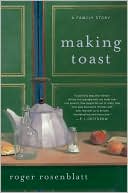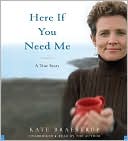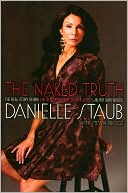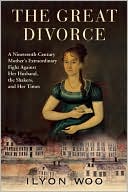Perfection: A Memoir of Betrayal and Renewal
"Heart-wrenching but triumphant."\ --Glamour\ "A lyrical, haunting, and utterly gripping memoir."\ --Redbook\ "A dark, evocative memoir from a woman forced to come to terms with her husband's death and the revelation of his infidelity."\ --Shelf Awareness\ "A fascinating memoir."\ --People\ "A delectable summer read."\ --USA Today\ "She brings refreshing candor to a startling, painful tale."\ --New York Times\ "A riveting memoir."\ --Real Simple\ "...lyrical, moving prose."\ --Working...
Search in google:
Julie Metz had seemingly the perfect life—an adoring husband, a happy, spirited daughter, a lovely old house in a quaint suburban town—but it was all a lie. Julie Metz's life changed forever on one ordinary January afternoon when her husband, Henry, collapsed on the kitchen floor and died in her arms. Suddenly, this mother of a six-year-old became the young widow in her bucolic small town. But that was only the beginning. Seven months after Henry's death, just when Julie thought she was emerging from the worst of it, came the rest of it: She discovered that what had appeared to be the reality of her marriage was but a half-truth. Henry had hidden another life from her. Perfection is the story of Metz's journey through chaos and transformation as she creates a different life for herself and for her young daughter. It is the story of rebuilding both a life and an identity after betrayal and widowhood, of rebirth and happiness—if not perfection. Julie Metz is a graphic designer, artist, and freelance writer whose essays have appeared in publications including Glamour and Hemispheres magazines and the online story site mrbellersneighborhood.com. The recipient of a MacDowell Fellowship, she lives in Brooklyn, New York, with her daughter and partner. The New York Times - Janet Maslin [Ms. Metz] brings refreshing candor to a startling, painful tale.
One\ January 8-12, 2003It happened like this: Henry's footsteps on the old wooden floorboards. The toilet flushing. More footsteps, perhaps on the stairs. Silence. Then the thud.I was working downstairs in my office on a bitterly cold Wednesday afternoon. My workspace was an enclosed sunporch off our living room, the small-paned windows on three sides framing a view of the snowy hills across the road. Wrapped in a shawl,wearing fuzzy socks on my chilled feet, I continued studying the project on my computer screen. I had been a graphic designer for nearly twenty years, a freelancer, specializing in cover designs for book publishers. Today's project was a novel about hard-luck cowboys, due yesterday, as always. I stopped fiddling with type design possibilities as I glanced at the computer clock -- in an hour I would have to make a dash out to the car to pick up our six-and a half-year-old daughter Liza just before school let out at 3:10. Henry had been sick in bed all morning. There would be the freezing cold wait and the daily social milling with the other mothers on the school playground, then the quick drive home to finish my work. I'd wear my new sheepskin coat today and feel guilty about its expense on a warmer day. On second thought, the distressed sans serif type worked better with the moody image of a cowboy leaning against a split rail fence.Suddenly my brain rewound sharply.It wasn't a package dropped outside by the UPS guy.My office phone rang. Instinctively, I answered. The photographer on the line asked me how I liked the images he had emailed.It wasn't the cats knocking groceries off the kitchen counter."I can't talk now -- something bad is happening." I ended the call abruptly.The rooms were silent as I ran up the stairs, calling for Henry. Two of our four cats skittered out of my way, their nails clawing the wooden treads. The bedroom was empty. I raced back down the stairs.I found Henry on his back, spread-eagled on the kitchen floor, his head a few inches from the oven broiler. He was still breathing. His body was silhouetted against the sea blue of the painted floorboards. I imagined the outline of a police chalk drawing of the victim at a crime scene. I was overcome with the feeling that I was in the scene and watching a scene on television -- an opening sequence of an episode of Six Feet Under, our favorite show that year. Usually some minor character dies in the first five minutes.He inhaled with a shallow breath; small dribbles of saliva on his curved lips, the skin on his face now sallow and ashen. He exhaled with a feeble sigh. His eyes flickered half open. I spoke to him to let him know that I was there with him, but for once in our life together he could not speak back.A long elastic minute stretched out and snapped: Is this when people call 911? Or is Henry going to sit up and tell me to stop fussing, like he did yesterday after he passed out? This must be the same thing. He came in after taking out the garbage and fell down flat on the floor. The doctor said all the tests were normal --I called 911. I sat down on the floor next to him stroking his forehead, watching him breathe. A hissing sound as spittle pulsed between his lips.I wish I had a notepad and pencil. Henry would want me to take notes. The EMS guys will come. They'll check him out. He'll be fine. He'll be telling people about his near death at our next dinner party. "The report of my death was an exaggeration," is what he'll say. Everyone will laugh and I'll feel pathetic for having worried so much.I'm happy to feel pathetic if everything will just please, please turn out okay.I called 911 again, just to be sure. I called Emily who lived five minutes away and was usually home at two in the afternoon. Anna was more reliable -- I knew she wouldn't freak out, no matter what happened today -- but she lived twelve minutes away. Then I called Matthew, Henry's best friend, who lived with his wife in a nearby town.Every minute will make a difference. The EMS guys will come; they will bring oxygen tanks, defibrillators, and IV bags. All will be well. Emily will help me find a babysitter for Liza, then she will go with me to the hospital, and we'll get there and Henry will be awake, smiling and joking as usual.I sat back down next to him on the blue floor stroking the familiar wrinkles, the scar over one eyelid, the small mole at the crest of one cheek.Inhale. Exhale. A blue gauze curtain passed over him. His skin turned to wax."Breathe!" I screamed at him. "Start breathing now!" I pounded him on the chest.He wasn't listening to me. I placed my mouth on his and blew my breath into him; the blue briefly faded into rose like a watercolor wash. But the flush faded back to blue. He was still. The man who for sixteen years had loved me, driven me crazy, fought with me, fed me, made love with me, made a baby with me, exhaled one last breath, the air I had blown into his lungs.I looked up, distracted by the sound of the sliding porch door, followed by a blast of cold air. The EMS guys had arrived with a gurney and gear and gently hustled me out of the kitchen. Emily followed right after them.* * *You'll know it's bad when they take you to the little waiting room. Emily held my left arm. Her face was pale, her lips still rosy from the cold, her dark bobbed hair peeking from under a familiar blue cloche hat. Matthew sat on my right. Matthew was tall, built like a tree. The sad-eyed young doctor told us it was a pulmonary embolism. A blood clot, formed in the leg, had moved upward and lodged in the lung, causing cardiac arrest. They had tried everything they could to revive him. But.Everything moved in slow motion as I processed his words. This couldn't be right. Whenever we'd watched Six Feet Under together, the main characters made it safely to the next episode. I slid off my chair to the floor and screamed.\ "You can lie next to him if you want," Emily offered. She was calm, amazingly, looking at Henry's lifeless body on the gurney. "Go ahead, it won't bother me at all."I climbed up onto the narrow gurney and lay down next to him. He would have wanted me to note every detail for him -- the way his chest was still warm, while his arms were already stiff and cold and his fingers were curled and blue. He had a bruise on the left side of his face. It was comforting to rest there with my arm around him, touching him in a familiar way, relieved still to have a companion, even a quiet one. He had beautiful feet, elegantly articulated toes, like the feet on a Greek statue. I peeled back his shirt to look at the distinctive scar on his chest. A bit of cornhusk had punctured his skin while he was working on a farm as a teenager. The healing wound had formed an inch-long raised keloid that I loved to touch in the dark. I touched the large and dark mole on his left shoulder. I felt the scar over his right eye, received as a child in a hotel in Honolulu (designed by Frank Lloyd Wright, Henry always added when telling the story), when a window had fallen suddenly out of its molding as he passed under it with his family. All his scars and moles, so well known to me, like stepping stones marking the way home through a dark wood.Two nurses came in. "You should go home now and get some rest," one said. She put her hand on my shoulder, squeezed me gently.Emily took my arm and we walked down the fluorescent-lit corridors and stepped out into the twilight, a remarkable sky of inky blue with low hanging clouds. A flock of black birds rushed up into the sky, their wings moved in unison, a tragic banner.
\ From Barnes & NobleThe second of Julie Metz's marriage began six months after her husband's sudden death. It was then that she first learned that her supposed partner for life had been unfaithful throughout their 13-year marriage. Unable to scuttle this painful information, she began to reconstruct her spouse's life, one mistress at a time. Perfection recounts a mission that begins as masochism, but ends as catharsis. This powerful memoir speaks to anyone who has been hurt in a relationship.\ \ \ \ \ \ RedbookLyrical, haunting, and utterly gripping.\ \ \ Janet Maslin[Ms. Metz] brings refreshing candor to a startling, painful tale.\ —The New York Times\ \ \ \ \ Publishers WeeklyAs recounted in this dark and affecting memoir, Metz's discovery of her husband's long trail of philandering well after he died reveals the state of willful ignorance and comfortable self-deception that reigned in her marriage. At their home in the northern suburbs of New York City on June 8, 2003, Henry, her husband of 13 years, suffered sudden cardiac arrest, leaving the author, a 44-year-old graphic artist, widowed and the sole caretaker of their six-year-old daughter, Liza. Initially unable to face the details surrounding his death, she left to her friends the task of cleaning out her dead husband's office, though those same well-meaning people hid from her the truth they gleaned from Henry's computer files and correspondence: he had been enjoying a two-year affair with another woman in their town, as well as numerous other dalliances. Metz, after the shock of Henry's death, found solace in shopping and flirting with a much younger artist, Tomas, who was also friendly with Henry; once Tomas intimated that Henry had another life, the author began digging, calling and e-mailing every woman she learned had had a relationship with her husband, obsessed with finding the truth. Metz's road to emotional honesty proves cautionary and trying. (June)\ Copyright © Reed Business Information, a division of Reed Elsevier Inc. All rights reserved.\ \ \ \ \ Kirkus ReviewsUpon discovering that her late husband cheated on her with multiple women, the author began researching his affairs. In early 2003, graphic designer and freelance writer Metz heard a crash in her suburban New York house. It was her husband Henry, collapsing from a pulmonary embolism. In the first months following his death, the author carried on raising their six-year-old daughter, Liza, while grieving and starting a relationship with Tomas, a friend of the couple. Then Metz found out about her late husband's adultery, setting her off on a witch hunt to find the women he'd been with. Searching for clues, she combed through illicit e-mails and Henry's journal (she quotes passages from each), then contacted his former lovers-scattered across the continent, all of them his type of "little brunettes"-to ask personal questions and furiously curse them out. The affair most upsetting to her was with Cathy, a local friend and mother of Liza's good friend. Metz repeatedly called Cathy names, reported the affair to Cathy's husband and broke up the daughters' friendship before concluding that the town was too small for both of them. The irony that the author fails to acknowledge as she describes her efforts to uproot the adulterous secrets was that she and Henry had a largely unhappy and unloving marriage. Toward the end, she admits, they were "barely able to have a peaceful conversation." She blames the failure of their union on his wandering eye and ceaseless search for perfection. Her claim that she ultimately let go of blaming Henry seems disingenuous, since the legacy she leaves both readers and her daughter is this vapid, mean-spirited record. The book's final third chronicles her successfulonline-dating quest for a new mate and subsequent move back to Brooklyn. Neither revelatory nor magnanimous. Agent: Elaine Markson/Elaine Markson Agency\ \
